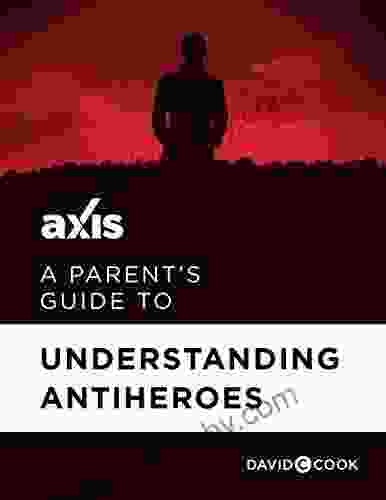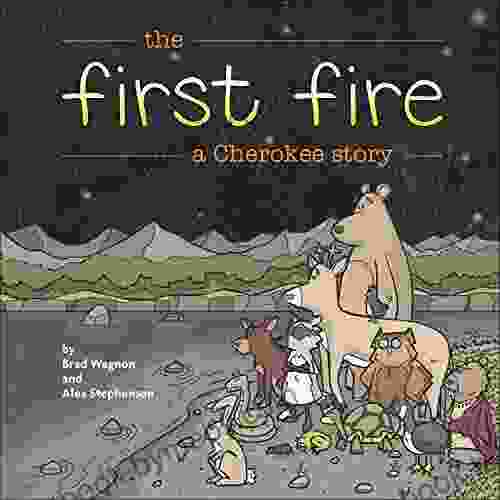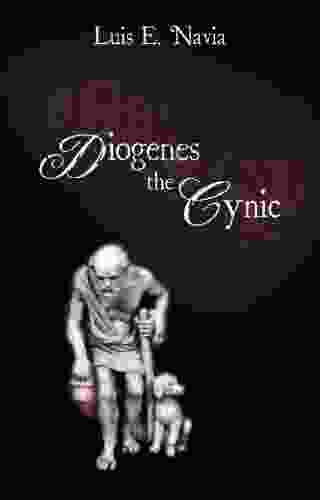The Parent's Guide to Understanding Antiheroes: A Comprehensive Guide for Parents of Tweens and Teens

Antiheroes are a popular trope in today's media landscape. They can be found in movies, TV shows, books, and video games. They are often complex and flawed characters who do not always do the right thing. This can be confusing and even concerning for parents of tweens and teens, who may be wondering how to talk to their kids about these characters.
This guide will provide parents with everything they need to know about antiheroes, including their motivations, their impact on kids, and how to talk to kids about them.
An antihero is a protagonist who does not always do the right thing. They may be flawed, selfish, or even downright evil. However, they also have some redeeming qualities that make them relatable to audiences.
5 out of 5
| Language | : | English |
| File size | : | 350 KB |
| Text-to-Speech | : | Enabled |
| Screen Reader | : | Supported |
| Enhanced typesetting | : | Enabled |
| Word Wise | : | Enabled |
| Print length | : | 18 pages |
Antiheroes are often outsiders or rebels who challenge the status quo. They may be fighting for a just cause, even if their methods are questionable. They may also be struggling with their own inner demons.
There are many reasons why antiheroes are so popular with tweens and teens. They can be seen as rebels who fight against the establishment. They can also be seen as flawed and relatable characters who are struggling to find their place in the world.
In addition, antiheroes can be very entertaining. They can be funny, charismatic, and even heroic at times. This makes them appealing to audiences who are looking for something different from the typical goody-two-shoes protagonist.
While antiheroes can be a lot of fun, there are also some concerns about their impact on kids. Some parents worry that antiheroes may teach kids that it is okay to be selfish or violent. They may also worry that antiheroes may make kids more likely to engage in risky behaviors.
There is some evidence to support these concerns. Studies have shown that children who are exposed to violent media are more likely to behave aggressively. However, it is important to note that these studies do not prove that antiheroes cause violence. It is also important to note that there are many other factors that can contribute to aggressive behavior, such as family environment and peer pressure.
If you are concerned about the impact of antiheroes on your kids, it is important to talk to them about it. Let them know that you are aware of the concerns about antiheroes, and explain why you think it is important to be critical of them. You can also use antiheroes as a starting point for conversations about important topics such as morality, ethics, and responsibility.
Here are some tips for talking to your kids about antiheroes:
- Be open and honest. Let your kids know that you are aware of the concerns about antiheroes, and explain why you think it is important to be critical of them.
- Use examples from the media. Talk to your kids about specific examples of antiheroes in movies, TV shows, books, and video games. Discuss the characters' motivations and actions, and talk about how they make you feel.
- Encourage your kids to be critical thinkers. Ask your kids questions about antiheroes. What do they think of the characters' motivations? Do they agree with the characters' actions? Why or why not?
- Set limits. Let your kids know that there are some antiheroes that you are not comfortable with them consuming. This may include characters who are extremely violent or who promote harmful behavior.
Antiheroes are a complex and fascinating part of today's media landscape. While there are some concerns about their impact on kids, it is important to remember that antiheroes can also be a source of entertainment and inspiration. By talking to your kids about antiheroes, you can help them to understand these characters and to make their own decisions about whether or not they are good for them.
5 out of 5
| Language | : | English |
| File size | : | 350 KB |
| Text-to-Speech | : | Enabled |
| Screen Reader | : | Supported |
| Enhanced typesetting | : | Enabled |
| Word Wise | : | Enabled |
| Print length | : | 18 pages |
Do you want to contribute by writing guest posts on this blog?
Please contact us and send us a resume of previous articles that you have written.
 Book
Book Novel
Novel Page
Page Chapter
Chapter Text
Text Story
Story Genre
Genre Reader
Reader Library
Library Paperback
Paperback E-book
E-book Magazine
Magazine Newspaper
Newspaper Paragraph
Paragraph Sentence
Sentence Bookmark
Bookmark Shelf
Shelf Glossary
Glossary Bibliography
Bibliography Foreword
Foreword Preface
Preface Synopsis
Synopsis Annotation
Annotation Footnote
Footnote Manuscript
Manuscript Scroll
Scroll Codex
Codex Tome
Tome Bestseller
Bestseller Classics
Classics Library card
Library card Narrative
Narrative Biography
Biography Autobiography
Autobiography Memoir
Memoir Reference
Reference Encyclopedia
Encyclopedia Rene Almeling
Rene Almeling Mac Fortner
Mac Fortner Justene Hill Edwards
Justene Hill Edwards Kari Kampakis
Kari Kampakis Jeneveir Evans
Jeneveir Evans Sal Tiano
Sal Tiano Katarzyna Wac
Katarzyna Wac Warren J Keegan
Warren J Keegan Ken Auletta
Ken Auletta Kate Waters
Kate Waters Stuart Kells
Stuart Kells Justin M Stone
Justin M Stone Kardas Publishing
Kardas Publishing Marilyn Willis
Marilyn Willis Mikael Lindnord
Mikael Lindnord Tessa Fontaine
Tessa Fontaine Katie Walsh Flanagan
Katie Walsh Flanagan Ken Foster
Ken Foster Kailash Limbu
Kailash Limbu Janet Evanovich
Janet Evanovich
Light bulbAdvertise smarter! Our strategic ad space ensures maximum exposure. Reserve your spot today!
 Clarence MitchellThe Meteoric Rise and Tragic Fall of William Fox: A Hollywood Icon's Tale of...
Clarence MitchellThe Meteoric Rise and Tragic Fall of William Fox: A Hollywood Icon's Tale of...
 Jaime MitchellThe Split History of Westward Expansion in the United States: Perspectives...
Jaime MitchellThe Split History of Westward Expansion in the United States: Perspectives... Jerome PowellFollow ·18.1k
Jerome PowellFollow ·18.1k Johnny TurnerFollow ·2.1k
Johnny TurnerFollow ·2.1k Mark TwainFollow ·13.3k
Mark TwainFollow ·13.3k Patrick RothfussFollow ·12.8k
Patrick RothfussFollow ·12.8k Ken FollettFollow ·15.2k
Ken FollettFollow ·15.2k Jace MitchellFollow ·8.7k
Jace MitchellFollow ·8.7k Anton ChekhovFollow ·11.5k
Anton ChekhovFollow ·11.5k Dashawn HayesFollow ·13k
Dashawn HayesFollow ·13k
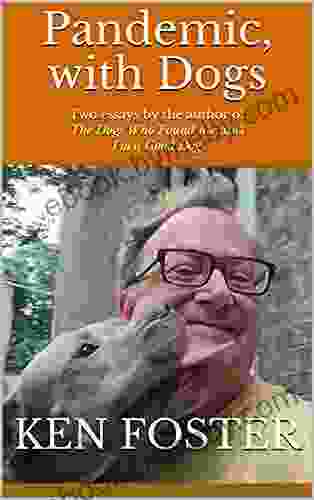
 George Orwell
George OrwellPandemic with Dogs: Two Essays
By Susannah Charleson In the midst of...

 Leo Mitchell
Leo MitchellAdam Smith's The Wealth of Nations: A Classic Treatise on...
Adam Smith's The...
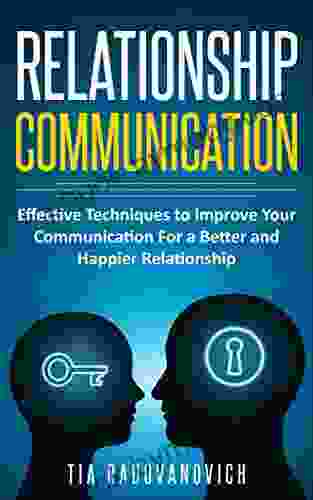
 Cade Simmons
Cade SimmonsUnlock Your Communication Potential: Effective Techniques...
Communication is a fundamental...
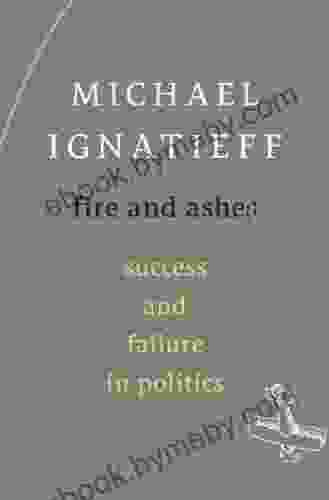
 Floyd Richardson
Floyd RichardsonFire and Ashes: Success and Failure in Politics
Fire and Ashes: Success and...
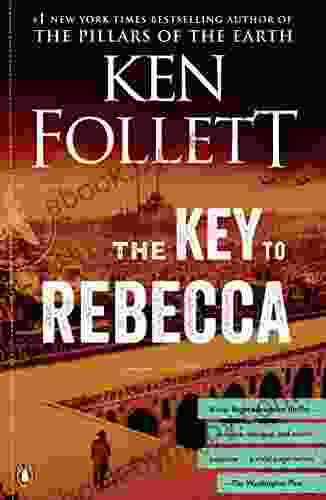
 Oliver Foster
Oliver FosterUnlock the Enchanting Mystery of Ken Follett's "The Key...
Embark on a captivating literary journey into...
5 out of 5
| Language | : | English |
| File size | : | 350 KB |
| Text-to-Speech | : | Enabled |
| Screen Reader | : | Supported |
| Enhanced typesetting | : | Enabled |
| Word Wise | : | Enabled |
| Print length | : | 18 pages |


